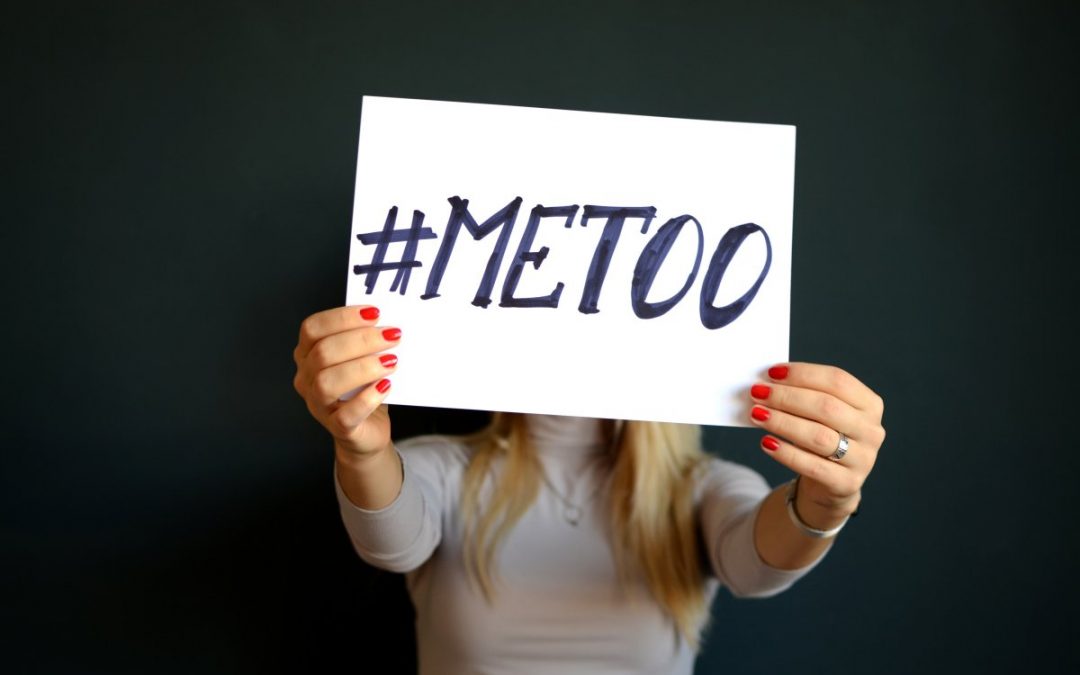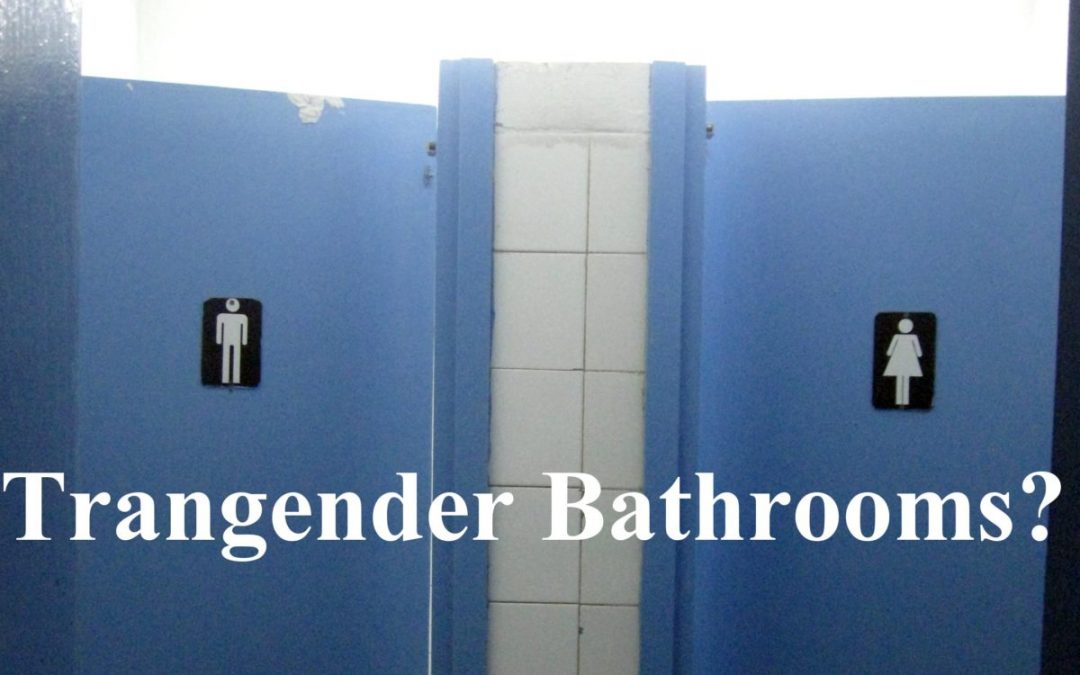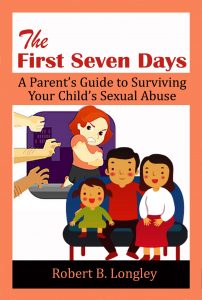
Sexual Abuse
Wouldn’t it be nice if your child’s sexual abuse never happened? What if we could stop abuse before it happens. One of the challenges is the prevention infrastructure focusing on potential offenders hasn’t existed in the past. It’s perfectly acceptable to publicly admit if you have a drinking, drug or gambling problem. You can look up these types of programs easily on Google and you have a choice of in-patient, counseling, support groups, you name it. There was a time when even these didn’t exist. But some things are not as easily accepted.
Cannibals’ Support Line
Few things raise public ire and fear more than a pedophile. Cannibalism is probably about on the same level of acceptance. Imagine TV ads, ‘If you are hungry for human flesh, we can help you curb the urge”. Even the ads would not be socially acceptable. So how do you mainstream acknowledgement of a problem that disgusts the average person, and identifies you as a potential criminal for expressing an interest in the behavior.
The admission is different as well. Acknowledging a substance abuse problem doesn’t necessarily indicate that you have broken any laws. Maybe you have, maybe you haven’t. Either way, you are likely to be accepted for your sins by society in general after the fact. Terms like pedophile or cannibal are forever linked to the person and what they did. Is it a double standard or are we just not ready to accept that attraction to children is just another problem that people are likely to have?
Help Wanted to Stop Abuse
Johns Hopkins is currently testing the waters on an online program for people who are likely to offend. The program is geared towards adolescents since adults may have already crossed the line. The goal is to correct behavior before it becomes criminal. There are already several successful programs for problem sexual behavior in adolescents, but they generally only come into play after abuse has taken place.
The Help Wanted program is different in that respect. They are trying to prevent abuse before it starts. I think we all wish our offenders had been able to get some help before they did what they did. It is a complicated process to get society to recognize this is just one more dimension of humanity. I don’t think they will be advertising on cable any time soon, but I wish them well in coming up with another way to prevent abuse in the future.
https://www.helpwantedprevention.org/

Sexual Abuse
A PTSD vaccine sounds like something out of a medical fairy tale. It is fast becoming a reality. While it won’t prevent sexual abuse or other conditions that can cause PTSD, it can make things better for the victims.
Dr. Rebecca Brachman has become a pioneer in the field of preventative psychopharmacology. Dr. Brachman and her team have been developing a drug, that would be the first of it’s kind. A vaccine for post-traumatic stress disorder and depression. This would truly be a groundbreaking discovery and would help millions of people.
The Immune Cells Key
While Dr. Brachman was completing her P.hD. at Columbia University, she discovered that immune cells carry a memory of psychological stress and that white blood cells can act as antidepressants. It was her interest in whether depression influenced the immune system, or if the immune system helped trigger depression. If this new drug is a success, we’d be able to cure depression before it happens. Currently, the best solution to depression and PTSD are just suppressing the symptoms.
While Dr. Brachman’s drug will target the stress response of the body, enabling the body to treat itself, she is not trying to completely cut off a person’s stress response because that could prove counterproductive to a cure. Instead, her goal is to stop PTSD and depression before it triggers mental illness. This research and PTSD vaccine could prove to be a game-changing discovery of mental health advancements.
The Possibilities of a PTSD Vaccine
This is exciting because it shows when a chemical process in the brain goes awry, there are things that can be done to curtail it. Using this on those experiencing PTSD early on following trauma could dramatically improve quality of life and the cost of healthcare.
Let us know if we can help you dealing with your family’s sexual abuse situation. For ideas to get started please check out our book on what to do during the early days after disclosure.

Sexual Abuse
There’s Too Many Abuse Reports
The number of sexual abuse reports has grown dramatically over the past few years. Most people think that this is a rise in sexual abuse, or that people are lying about sexual abuse because this can’t possibly be true. The reality is that in the past only about 15% of all sexual abuse is reported (ever). For some this is the day it happens, for others it is 30 years after the event. Many times victims wait until the person is dead. Most people have an artificial perception of reality because in the past, sexual abuse was not something that was talked about. The translation for some people is that all these new reports must be lies. It’s also a protective belief because we want to believe that we live in a safe world.
The reality is that victims are seeing other victims come forward and talk about their story. There is strengths in numbers and so more people come forward to share their abuse. It’s not that the amount of abuse has changed, but people are finally finding they can talk about it. Parents still tell their kids to not talk to strangers, but when it comes to sexual abuse, it’s usually people they know all too well.
The reality of Lying about Sexual Abuse
Lying about sexual abuse is actually relatively rare, but more likely to happen with teenagers than other age groups. It can actually go both ways. They may lie that it did happen, and they may lie that it didn’t.
In cases where they lie about something not happening, they are usually trying to preserve a relationship. Incest in particular doesn’t just hurt one person, it destroys families. Or maybe a student is having a relationship with a teacher and he/she doesn’t want them to get into trouble. If the abuse is happening in a competitive situation, they may be worried about their career based on who the abuser is, or how it would perceived. And in a lot of cases, the victim has been led to believe that they would be blamed or not believed.
In cases where they lie about something happening when it didn’t, this is usually about getting attention or getting back at someone. It’s also a way to control a situation. “Give me an A or I’ll tell people you …” There may be other psychological things going on in these cases as well. Parents in custody battles will also sometime coach their children to say things that influence the outcome. It’s an effective tactic because regardless of whether it is true or not, it will always be out there and people will wonder and treat the accused differently.
Hiding in Plain Sight
In general people don’t want others to know that they have been sexually abused, unless they know it’s happening to other people or they are worried that is going to happen to someone else. Often it’s a friend or a younger sister that they want to protect.
Statistically, young children don’t lie about sexual abuse. Claims should always be verified by a forensic interviewer, but when a child reports abuse, the assumption should be that they are telling the truth. The estimate is that false claims of sexual abuse overall are between 2 and 10 percent. Unfortunately even these statistics are skewed because they generally include cases where there is insufficient evidence to prosecute a sexual abuse claim. For children under 10, the number is less than 1 percent. The reality overall is that truly false claims are probably less than 3 percent. Unfortunately we will probably have to wait a few decades for a scientific study to find the correct number. Meanwhile the number of reports continues to grow.
#MeToo
MeToo is clearly not about lying. It’s about mutual support for victims to feel comfortable coming forward with their abuse experiences. A family member of ours recently disclosed abuse that happened over 50 years ago. It’s the first time she has ever talked about it. This is true for many women (and men) whether their abuse happened last week or in the last century. People often wonder why people wait decades to discuss their abuse. Here’s some of the typical reasons:
- We didn’t talk about those things in my day
- No one would be believe me because of who it was
- I was scared
- I didn’t want it to be true
- If I don’t talk about it I don’t need to think about it
- I blocked it out until I became an adult and then didn’t know what to do with it
- It would have destroyed my family
- My father would have killed him and gone to jail
- I couldn’t prove it
- Everyone knew we were dating
- I was drunk
- Everyone thought I was a slut anyway
- Boys don’t talk about being raped
- Insert your reason here
Maybe Not
Unfortunately #MeToo also brings in a new dimension in potential false sexual abuse claims. Most people in MeToo are victims that find the courage to come forward because someone else did it first. Certain people will see this as an opportunity to get attention because others who have come forward are getting attention. Again, this is rare, but it happens enough that it can cast dispersion on legitimate cases of abuse.
Claims aside, the reality of sexual abuse is epidemic. Every 98 seconds, an American is sexually assaulted. However, only 6 out of every 1,000 perpetrators will end up in prison. One out of every 10 rape victims are male, meaning the other nine are women. We need to step back from trying to label who is telling the truth and who isn’t and focus on the size of the problem. People who lie about abuse might get their 15 seconds of fame, but in the long run the problem is just to big to be dismissed by the actions of a few people with questionable motives.
Sources:
National Sexual Violence Resource Center http://www.nsvrc.org/sites/default/files/publications_nsvrc_factsheet_media-packet_statistics-about-sexual-violence_0.pdf
The Conversation
http://theconversation.com/heres-the-truth-about-false-accusations-of-sexual-violence-88049
RAINN
https://www.rainn.org/statistics/victims-sexual-violence
Let us know if we can help you dealing with your family’s sexual abuse situation. For ideas to get started please check out our book on what to do during the early days after disclosure.

Sexual Abuse
Sex tourism means that an individual travels to a country to engage in a sexual act that they pay for. Usually this sex involves children. Many of the participants are victims of sex trafficking or sexual slavery. Surprisingly, this type of tourism is fairly common, especially in third world countries. Even though it’s illegal in many places it doesn’t stop many individuals from accepting payment for sex. Here are a couple of reasons why someone might risk breaking the law in order to receive money for performing sexual acts on a tourist.
CNN reported that 4000+ sex offenders get US passports each year. It sound absurd but this is just another example of a system that doesn’t quite work. Unless it can be proved that the person is engaging in sex tourism, there is nothing to prevent them from getting a passport. It’s sort of like finding out that past sex offenders can work at children’s camps in Connecticut as long as they aren’t the director or assistant director. There needs to be more open communication between agencies to plug the gaps in how our society deals with sex offenders.
Extreme Poverty and Sex Tourism
Those that live in third world countries often experience extreme poverty. They don’t have a proper education and they have a difficult time gaining employment. Because of this, they will often take any job that they can get even if it means becoming involved in sex tourism. Their extreme poverty will influence them to do almost anything to earn money so that they can feed their family, even if it involves sexual acts. Those who participate in sex tourism know how dire their situation is and are willing to do just about anything in order to make money.
Lack Of Proper Education About The Consequences
Sex tourism is a dangerous business. Those who participate in it often don’t realize the legal ramifications that could come about if they get caught. Even though they may understand that it’s frowned upon, they don’t fully grasp that they could face a fine or even go to jail if they get caught. Also, they don’t realize that there could be health consequences as well. Unfortunately, in many third world countries there isn’t a lot of information about sexually transmitted diseases. For an individual that participates in sex tourism, they don’t always fully understand that they are at risk of getting an STD.
Not Enough Enforcement
It’s no surprise that in third world countries there tends to be a lot of crime. Because of this, something like stopping sex tourism is simply not a priority. If there are laws against it, they often aren’t enforcement. Law enforcement officials tend to have more pressing issues to deal with. As long as no other more serious crimes are committed, like rape or battery, sex tourism tends to be overlooked. Something like sex stopping sex tourism just isn’t seen as a priority.
Victims Don’t Speak Out
It’s not uncommon for those who are receiving money for sex tourism to feel forced to do so. They don’t know that they can speak out against it. Unfortunately, the money that they bring it from it greatly helps to benefit their families. Without it, these individuals wouldn’t be able to feed their children, brothers or sisters or parents. Even if they wanted to speak out, they have no idea where to turn to in order to get help.
Learn more:
Let us know if we can help you dealing with your family’s sexual abuse situation. For ideas to get started please check out our book on what to do during the early days after disclosure.

Sexual Abuse
Sexual assault on college campuses is almost a taboo subject in the academic world. You won’t see the following headline on any college brochure or web site. “You have a 1 in 4 chance of being sexually assaulted if you come here” . It’s not specific to any one college, but it tends to be a common estimate for the sexual assaults. It’s also terrible from a PR perspective. On the one hand colleges must report sexual assaults and other campus violence annually to the Federal Government. But on the other hand, that kind of transparency doesn’t do much to attract new students. In some cases colleges are doing everything possible to make the numbers they report as low as possible.
Accused of rape = expulsion
It makes for a great heading, but is it a great policy? Colleges often operate under their own rules when it comes to crimes. Some schools automatically turn over cases to local police, others prefer a disciplinary committee. Police reports generally ensure due process, but they attract negative attention to the school. Disciplinary committees may take a one size fits all approach that may or may not take state laws into account. They do take into account the stupidity of 18-22 year olds. They try to make decisions that don’t need to follow someone for the rest of their life.
Victim claims are often dismissed in favor of the greater good of the college. Also, some accused are expelled based on a lower standard of evidence than if it was handled by the police. And what about those police reports? In many cases, sexual assault cases handled through a disciplinary committee may never make it’s way to the police crime stats. Translation – lower numbers in the crimes reported area.
Through the Looking Glass
Colleges aren’t really part of the real world. Most of us that have survived the experience will look back and realize that we could not live like that today. Aside from the parties, all nighters and wearing pajamas to class, the rules on college campuses can be equally distorted. Sometimes in sexual assault cases, things happen at colleges that just make you go – huh!
Case in point is the recent lawsuit at the University of Kentucky. A professor recently resigned over sexual assault allegations. The victims demanded the school paper release the case details. The attorney general wants the details as well. The university is currently suing their newspaper to block the release of the information. They claim that they are preserving the rights of the victims. (These were the people that wanted the information released in the first place.) Again, back to the PR vs transparency issue.
http://www.cnn.com/2016/09/01/us/university-of-kentucky-sues-student-newspaper-sexual-assault/index.html
Kimberly Theidon claims she was denied tenure by Harvard University. She will lose her job there due to her advocacy for victims of sexual violence at her school.
http://www.huffingtonpost.com/2014/04/17/harvard-retaliation-professor-tenure_n_5159995.html
One of the biggest college sex abuse scandals has been at Occidental College. Students and staff are often reprimanded or fired for speaking out about the school’s policy on sexual misconduct.
http://jezebel.com/colleges-silence-and-fire-faculty-who-speak-out-about-r-1586169489
http://www.cnn.com/2015/11/19/us/whistleblowers-campus-rape-
Star Trek Logic
Probably the most famous line from a Star Trek movie is Spock saying, “The good of the many outweighs the good of the few”. It is a point of illogic that the movie goes on to show that the opposite is true. Many schools haven’t figured that out. There are numerous incidents of schools sacrificing both students and staff to preserve the institution. What’s interesting is that some schools are as likely to dismiss a victim complaint as they are to expel an accused student just to make the problem go away.
The irony is that while they think they are preserving the integrity of the organization, in fact they are doing just the opposite. Schools need to deal with the pain of the negative activities within their population as openly as possible. Those who fail to learn from history are destined to repeat it.

Sexual Abuse
Much like military intelligence and jumbo shrimp, the idea of transgender sex offenders is generally an oxymoron. I only put the two terms together because that is what certain groups would have you believe. As battle lines are being drawn through our public bathrooms, it would be nice to have a dose of reality.
Most of us have been following the drama with the North Carolina law, but the wave is spreading. Unless you are gay or in a state bordering North Carolina you might not give their new bathroom law too much credence. On the other hand, Target Corporation has taken a position which puts the transgender bathroom issue front and center. They are instituting a policy which affirms the rights of transgender persons to use the bathroom that matches the gender they identify with. I think it’s a bold step forward, but not everyone agrees. Calls to boycott Target are stirring in many conservative religious areas. So far the American Family Association, a Tupelo, Miss.-based religious non-profit organization founded by First United Methodist pastor Donald E. Wildmon has issued a petition that has received 1.2 million signatures. So this is not an issue that is going to be resolved quietly.
Importance of Education
Aside from the general ignorance of transgender people, the American Family Association clearly doesn’t know who sexual predators are. In their attacks on Target they argue that “Target’s policy is exactly how sexual predators get access to their victims. And with Target publicly boasting that men can enter women’s bathrooms, where do you think predators are going to go?” It’s a ludicrous argument on several levels.
Most sexual offenders are heterosexual adult males. Virtually all sexual assaults are committed by someone the victim knows. The percentage of sexual assaults that occur in bathrooms involving strangers is not even statistically significant – but they will make the news. Transgender people are actually at higher risk of being victims of sexual abuse. Transgender and transvestite are conceptually different. The first is about creating a new reality for your gender identity. The other is more about creating a fantasy. Also, you are highly unlikely to have sex offenders who are are transgender. But you are are somewhat likely to have sex offenders who are transvestites. This is where things get a little muddy.
It would be a rare situation where a potential offender will dress up for purposes of getting access to women’s restrooms. I’m sure it happens now, and it will probably happen in the future. Still these are the incidents which hate groups will use to target transgender individuals who are using the bathroom which they gender identify with.
Privacy
It’s going to take a while before some people stop paying attention to chromosomes being the key for public bathroom entry. Regardless of the symbol on the door, bathrooms should be a place of privacy. It would nice if that privacy extended to the door and not just the stall.
Let us know if we can help you dealing with your family’s sexual abuse situation. For ideas to get started please check out our book on what to do during the early days after disclosure.






